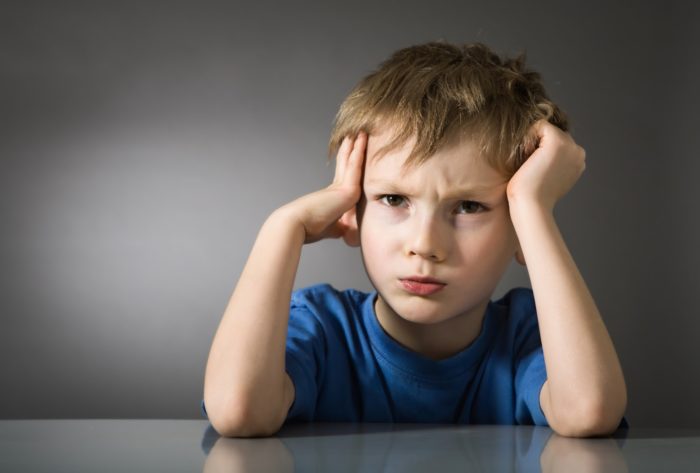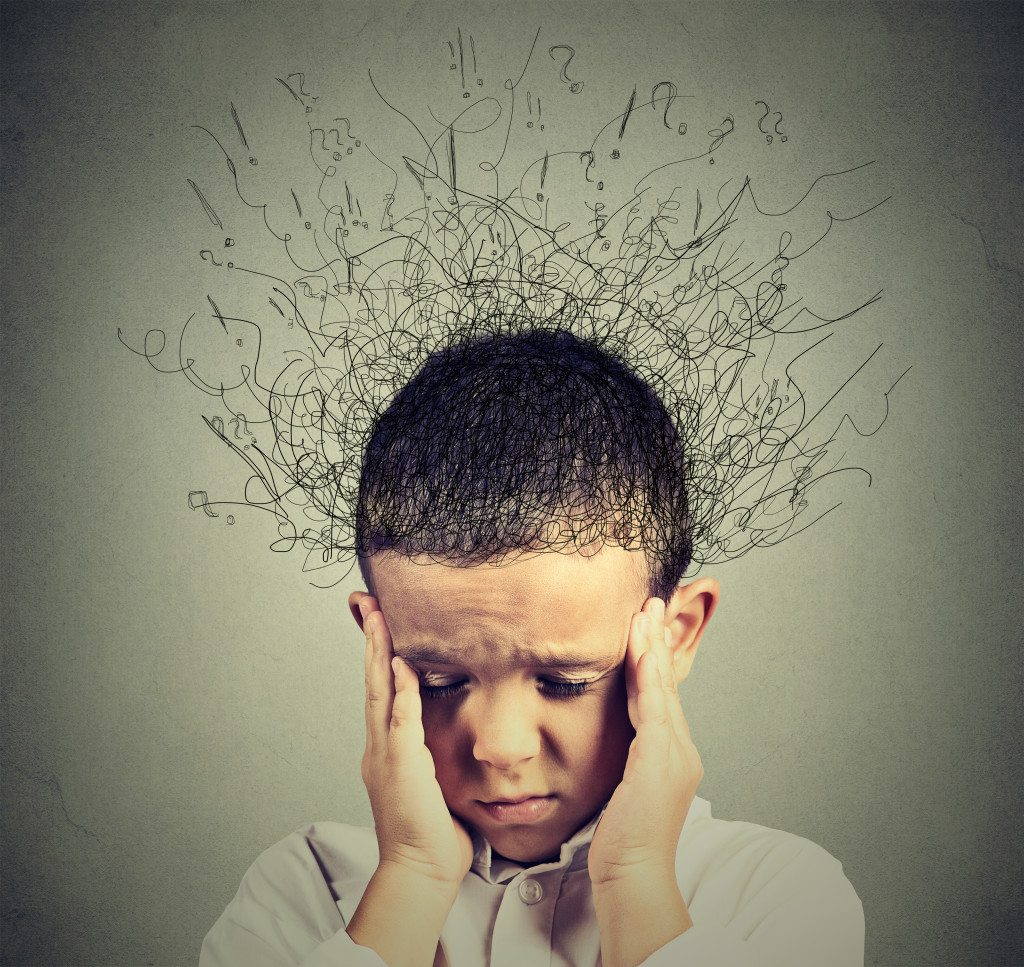Delirium, a perplexing and bursty condition in children, presents itself with sudden confusion, disorientation, and changes in perception that can leave both the child and parents perplexed. The underlying cause of delirium is crucial to identify as it could be indicative of a severe illness or medical emergency.

One possible factor causing this maddening situation is infections such as meningitis or encephalitis which can impact the brain resulting in an abrupt onset of confusion and disorientation. Other causes may include medication side effects or withdrawal, substance abuse, head injuries or metabolic imbalances.
The signs of delirium manifest themselves through hallucinations, agitation, restlessness sleep disturbances and altered consciousness levels. If these symptoms persist for an extended period or become more severe over time immediate consultation from a healthcare professional who specializes in pediatrics is recommended.
It’s vital to understand that any sudden onset of confusion should not be taken lightly but rather treated as potentially life-threatening; hence prompt medical attention must not be delayed under any circumstances. Early diagnosis coupled with proper treatment will help prevent complications associated with delirium while improving outcomes for affected individuals.
Sudden Confusion in Children: Addressing Common Causes and Seeking Help
A perplexing and disorienting occurrence for children is sudden confusion, which could indicate an underlying medical condition. Delirium, a severe ailment that necessitates immediate medical attention, is one of the primary culprits behind this phenomenon. Symptoms of delirium encompass disorientation, changes in perception, confusion, and altered mental status.

Sudden confusion in children may also stem from infections, medication side effects or behavior issues. In some instances, it could be an indication of epilepsy or brain injury. Therefore, if you observe any signs or symptoms of delirium in your child’s demeanor, seeking help immediately becomes paramount.
In case you suspect your child has contracted delirium or other critical illness leading to their sudden confusion dial 999 for urgent ambulance services without delay! When it comes to taking care of your child’s health concerns don’t leave anything to chance! Early diagnosis and treatment can prevent complications and improve outcomes for your little one’s recovery from delirium or any other hidden cause accountable for their sudden bewilderment.\n
Disorientation in Children: Signs and Symptoms to Look Out For
The sudden onset of confusion in a child can be an unsettling experience for those responsible for their care. This perplexing symptom has been linked to various conditions, from fleeting illnesses to more serious medical issues requiring immediate attention. Symptoms that may accompany confusion in children include difficulty focusing, memory loss, abrupt changes in behavior or mood swings and even delusions.
A myriad of factors such as infections like meningitis or encephalitis, medication side effects and behavioral disorders have all been known to trigger sudden-onset confusion. If your child experiences any unexpected alterations in perception or conduct, it is imperative that you seek the guidance of a healthcare provider without delay. In some cases, this could signify an underlying condition necessitating urgent treatment.
Underlying causes contributing to confusion among children are diverse and multifaceted ranging from neurological maladies such as epilepsy to psychological challenges like anxiety and depression. These complex ailments often require specialized care from trained experts who can diagnose them accurately while delivering effective treatment options tailored for each unique case scenario. Furthermore, certain medications prescribed for other health concerns may have perplexing side effects impacting cognitive function.
Parents and caregivers must remain vigilant at all times when observing symptoms associated with disorientation or other signs of confusion manifesting themselves in children under their supervision. Swiftly seeking professional medical assistance will ensure swift diagnosis coupled with appropriate treatment plans designed explicitly based on the underlying causative factors involved thereby providing much-needed reassurance during what can often be a turbulent period both emotionally and physically alike for both parent/guardian(s) & child concerned.\n
Delirium in Children: Diagnosis and Treatment Options
The perplexing disorder of delirium in children is a matter that demands immediate diagnosis and treatment. This condition can stem from an array of factors, including infections, medication side effects, and behavioral disturbances. A primary cause of this puzzling phenomenon is the sudden onset of confusion or disorientation.
Should your child experience such bewildering symptoms, prompt action must be taken to address the issue at hand. Seeking medical attention to eliminate any underlying causes like fever or indications of serious illness should be considered as a top priority. Once these concerns have been ruled out, it’s crucial to provide reassurance and support for your child during their time of bewilderment.
Be on high alert for signs indicating delirium in children or adolescents – restlessness, changes in behavior or perception are all telling indicators that necessitate swift medical intervention. The course of treatment may involve medications designed to manage symptoms along with behavioral support systems aimed at helping patients cope with their condition.
Always bear in mind that untreated delirium carries long-term implications which cannot be ignored under any circumstance. Addressing the root causes behind sudden confusion early on while providing appropriate care options will steer your child back towards good health – easing them out from under the weighty burden they face due to this tumultuous disorder!
Underlying Causes of Confusion in Children: Infections, Medication, and Behavior
The perplexing nature of delirium in pediatric patients is not to be underestimated. Identifying the underlying cause requires proper diagnosis, which can prove challenging given the burstiness of symptoms that vary depending on age and medical illness. Disorientation, agitation, and hallucinations are common signs of confusion in children but determining what’s causing them can feel like a puzzle.
Infections are a potential culprit for sudden delirium in children as certain viruses or bacteria have been known to affect brain function. Medication side effects or surgery complications may also lead to confusion. However, one shouldn’t overlook behavioral issues as they too pose a risk factor for mental health problems resulting in symptoms of delirium.
Parents should pay close attention to any changes in their child’s behavior that seem out of character as it could be indicative of trauma or stressors at home or school affecting their well-being. Consulting with a child and adolescent psychiatrist may provide valuable insights.
If parents notice severe symptoms such as headaches accompanied by vomiting or seizures along with the above-mentioned signs then calling an ambulance without delay is recommended irrespective of time including today’s date. A doctor will likely perform tests before beginning treatment options for diagnosing delirium thereby alleviating some perplexity from this puzzling condition.
Recognizing Symptoms of Delirium in Children and Adolescents
Perceiving the symptoms of delirium in children and adolescents can prove to be a perplexing task, as its manifestation often diverges from that of adults. The condition may manifest itself through confusion, disorientation, or changes in perception. Parents ought to remain cognizant of these enigmatic indicators so they can seek medical attention if necessary.
One pivotal indication that a child is suffering from delirium is their hypoactive behavior. This implies that the child may exhibit unusual levels of quietude or withdrawal, failing to respond to stimuli with their customary enthusiasm. While mild cases may subside on their own without intervention, more severe instances necessitate professional evaluation by a doctor or psychiatrist.
In addition to this, parents must comprehend that there are several underlying causes for confusion and disorientation among children and teenagers – infections such as meningitis or encephalitis, medication side-effects, anxiety or depression being only a few examples. If your child exhibits sudden alterations in perception or behavior which perturb you deeply – it’s always prudent to err on the side of caution and seek an expert’s opinion regarding the same.
Seeking Medical Attention for Confusion and Changes in Perception
In the event that your offspring is encountering bewilderment or alterations in their perception, it is of utmost importance to obtain medical assistance without delay. These indications may signify a severe condition that necessitates timely diagnosis and intervention from a physician. Although certain causes of confusion can be reversed by treating the underlying ailment, others may require immediate measures to prevent further health issues.
It’s crucial to become an advocate for your child’s well-being and seek aid if you notice any signs of perplexity or disorientation. The provision of behavioral support from caregivers and modifications to their environment could prove beneficial in keeping them tranquil while waiting for healthcare professionals’ evaluation. If there exists uncertainty as to whether your child’s symptoms warrant emergency care, dial 999 for guidance on how best to proceed.
The prevalence of delirium among children fluctuates depending upon age groupings and underlying conditions; however, early identification of symptoms can enhance outcomes and diminish the risk of complications. When seeking medical attention for confusion or changes in perception, it is essential to provide comprehensive information regarding your youngster’s behavior, including recent illnesses or medications they have ingested. A thorough appraisal by a physician can aid in pinpointing potential causes behind these symptoms while determining suitable next steps towards treatment and management strategies.
How to Help a Confused Child: Reassurance, Evaluation, and Behavioral Support
In the face of a child’s bewildered state, initiating pacification should be your first course of action. Children may experience trepidation or unease when faced with confusion, hence it is paramount to communicate their safety and your unwavering presence for them. Speak in a tranquil manner and articulate yourself clearly using straightforward language that they can easily comprehend. Make an effort to maintain eye contact and frequently use their name as a means of keeping them attentive.
It is equally crucial to scrutinize the situation at hand with meticulousness. Observe any peculiar symptoms or behaviors exhibited by your little one such as worsening at night or exhibiting uncertainty towards familiar objects. This data will aid in establishing whether their perplexity stems from an underlying medical condition or other factors like stress.
Should you suspect that your child’s confusion may be due to a medical issue, seek diagnostic evaluation from a pediatrician without delay. Some ailments might require immediate attention while others could necessitate time for adequate diagnosis and treatment planning. Persistent bewilderment must not go unnoticed and requires prompt medical attention without fail.
As well as seeking professional guidance, offering behavioral support can also prove advantageous in helping children cope with perplexity effectively. Create an environment devoid of distractions where they can rest comfortably until further healthcare assessment becomes available if required.
Remember: Perplexity in children could indicate grave illness; thus parents ought to remain vigilant about identifying signs of distress in their young ones!

